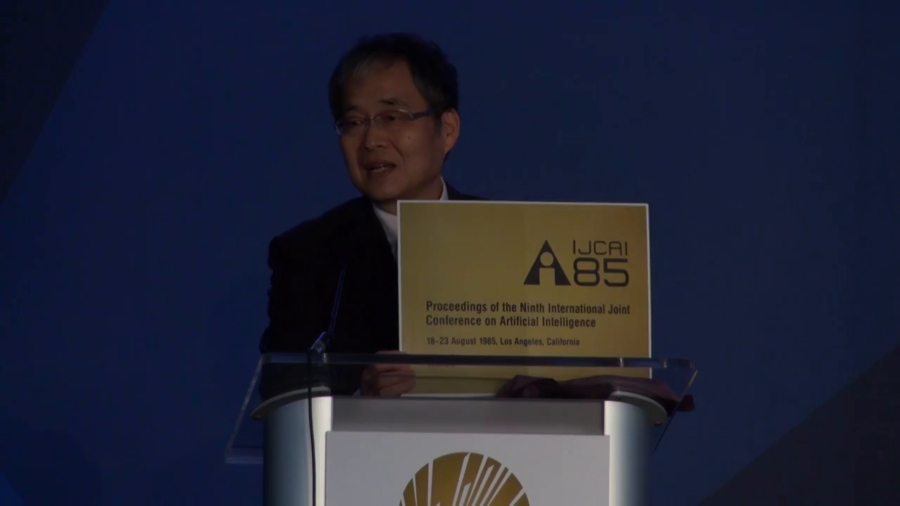Shigeki Goto: Thank you for the introduction. We are all aware that UCLA is the very birthplace of ARPANET. However, UCLA’s activity is quite wide. For my personal memories, UCLA is a place of artificial intelligence. Here is the evidence. That was one of the top conferences on artificial intelligence, IJCAI, International Joint Conference on Artificial Intelligence, held in 1985. [applause] I made a presentation at IJCAI which I will not explain because it needs fifteen minutes. That was my last activity in California at the time. I was a visiting scholar at Stanford University, under the leadership of professor John McCarthy, who coined the word “artificial intelligence.” And then I realized the real power of the ARPANET during my stay at Stanford University, and I returned from Los Angeles to Tokyo and back to my home institute, NTT Laboratories. NTT is a Japanese telephone company.
Then, I had good news and bad news. The good news is my colleagues [were] eager to deploy IP network in Japan to facilitate joint international projects. So then I simply followed the Stanford way and just purchased Cisco product, the first Cisco product user in Japan. And asked SRI-NIC to allocate a global IP address, which was not connected in 1985. However my friend Ken Murakami, using a modified version of IOS, with help from Cisco founder Len Bosack, who was a research associate at Stanford at the time.
So then, other friends were quite eager to realize a multilingual realization of the Internet and they came up with a modified Mosaic browser with a server. Which is very hard to read but it’s 1993, just the before the boom of the World Wide Web, made by my friends [Toaki?], Toshihiro and Susumu. They achieved their goal just before the boom of World Wide Web. That’s good.
And then my friend Yasuki Saito, negotiated with NSF and the DOD to make the IP network official, the Ken Murakami-modified IOS, DNI [IDN?]; and NTT and BBN, that’s the very first IP packet between Japan and the US in summer 1988.
So these are all good news, and we had a friend in Korea and China. We all worked together on multilingual browsers and servers, and that comes to the international domain names right now. These are good news.
The bad news was my dream in artificial intelligence which I described in my paper at IJCAI at UCLA was proved to be infeasible theoretically. Very sad story for me as a computer scientist.
So then, there are many supporters for the IP network and I have zero dream in artificial intelligence. I had to switch my primary research area from artificial intelligence to computer networks. That’s my personal story.
So I learned a lesson. It’s acceptable to give up one dream. Still, there should be something for us to contribute to human society. In my life, that was the Internet. Thank you very much for inducting me to the Internet Hall of Fame. It’s the greatest honor to me, and my friends. Thank you very much.
